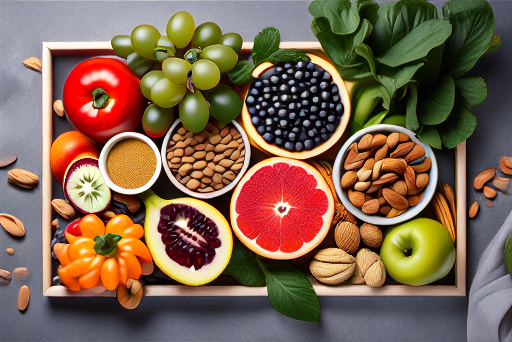Dr. David Sinclair, a professor of genetics at Harvard Medical School, has revolutionized his health through lifestyle changes and diet. At 54, he looks and feels younger than he did at 44. His biomarkers—including testosterone, glucose, and inflammation levels—indicate he’s healthier than most 20-year-olds. In this summary, we’ll explore his insights into longevity, divided into five key parts:

- Exercise Rules for Longevity
- Key Eating Habits
- Longevity-Boosting Foods
- Daily Supplements
- Foods to Avoid
Exercise: Breathless Workouts to Slow Aging
Dr. David Sinclair recommends exercising three times a week at an intensity that makes it hard to hold a conversation—essentially, reaching a state of low oxygen (hypoxia). This stress response triggers the body to improve muscle strength, blood flow, and cellular defenses against aging. Even 10 minutes of breathless exercise per session can reduce disease risk by up to 30%.
Eating Habits: Fewer Meals for a Longer Life
Dr. David Sinclair emphasizes that it’s not just what you eat but when you eat. He practices time-restricted eating, consuming all his meals within a six-hour window, often limiting himself to one daily vegan meal. Prolonged fasting activates autophagy, a process that cleans and rejuvenates cells. This fasting also triggers longevity-promoting genes called sirtuins, which are activated when energy and sugar levels are low.
Practical Tips for Intermittent Fasting
- Stay hydrated with coffee, tea, or water throughout the day to curb hunger.
- Gradually extend fasting periods to at least 16 hours daily.
- After two to three weeks, your body adapts by maintaining stable glucose levels, eliminating hunger spikes.
Longevity-Boosting Foods

Dr. David Sinclair focuses on a plant-based diet full of “stress plants”—plants that produce beneficial molecules when grown under challenging conditions. These molecules, like polyphenols, activate cellular stress responses and improve health.
Examples of Stress Plants
- Leafy Greens: Spinach is rich in iron and vitamins.
- Green Tea: Matcha contains polyphenols with anti-inflammatory properties.
- Bright-Colored Vegetables: Red, purple, and dark green vegetables are rich in longevity-boosting compounds.
Dr. David Sinclair also recommends olive oil, a key component of the Mediterranean diet, which activates sirtuins and supports heart health. For those transitioning to a plant-based diet, he suggests the Okinawan or Mediterranean diets as alternatives, incorporating fish and vegetables.
Supplements for Longevity
Sinclair takes three key supplements daily, although he doesn’t endorse specific brands:
- Resveratrol (from red wine grapes): A polyphenol that activates longevity pathways. He mixes it with yogurt for better absorption.
- NMN (Nicotinamide Mononucleotide): A form of vitamin B3 that boosts NAD levels, essential for activating sirtuins. NAD production declines with age, but NMN restores levels, improving cholesterol, blood pressure, and cellular repair.
- Metformin: A diabetes drug that lowers blood sugar and reduces risks of cardiovascular disease, frailty, and Alzheimer’s, even in non-diabetics.
Foods to Avoid for Longevity

- Sugar and Refined Carbohydrates:
High blood sugar accelerates aging by damaging proteins and feeding cancer cells. Sinclair has eliminated sugary foods, fruit juice, and bread from his diet. Instead, he relies on his liver to produce glucose naturally, avoiding the energy crashes associated with sugar spikes. - Meat:
While meat is rich in protein, plant-based proteins are better for longevity. Plant proteins activate longevity pathways like sirtuins without the harmful fats found in meat. Sinclair occasionally includes fish, which contains beneficial omega-3 fatty acids. - Dairy:
Reducing dairy intake has improved Sinclair’s biomarkers. Lower protein consumption suppresses the mTOR pathway, which is linked to aging. - Alcohol:
Recent research shows daily alcohol consumption is detrimental. Sinclair has cut it out but suggests choosing stress-sensitive wines, like Pinot Noir, for those who still enjoy a glass occasionally.
Conclusion
Dr. Sinclair’s approach to longevity—exercising regularly, fasting, eating stress plants, and avoiding harmful foods—has not only improved his health but reversed many signs of aging. By following his example, you can activate your body’s defenses, slow aging, and lead a healthier, longer life.
This rewrite organizes the information into a clear structure while maintaining the original content’s integrity.
